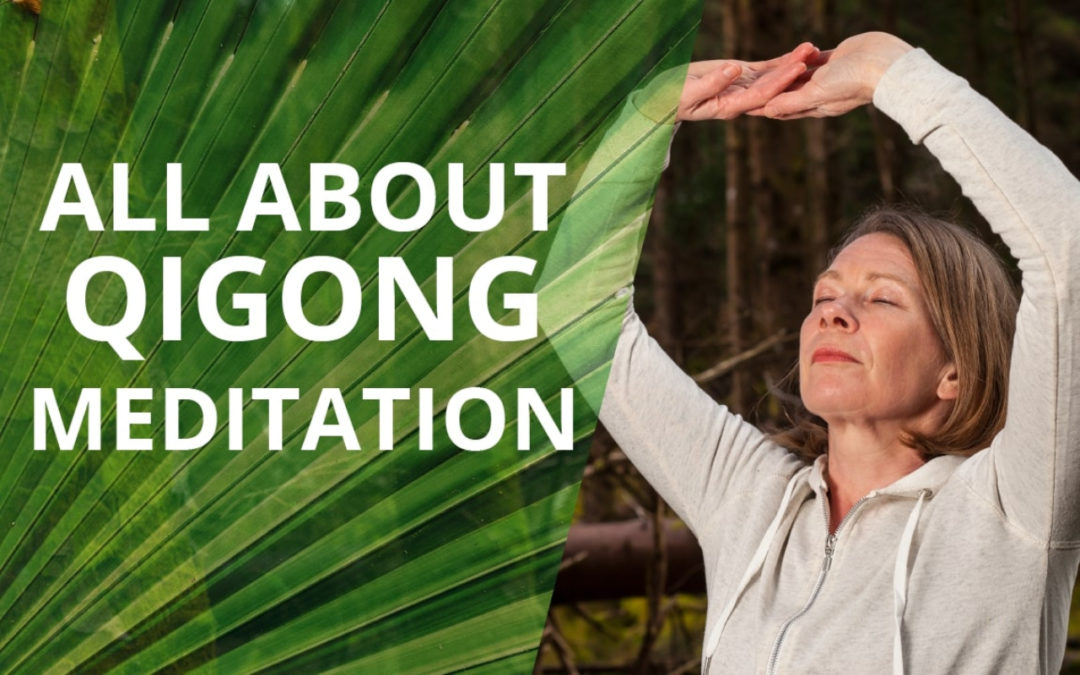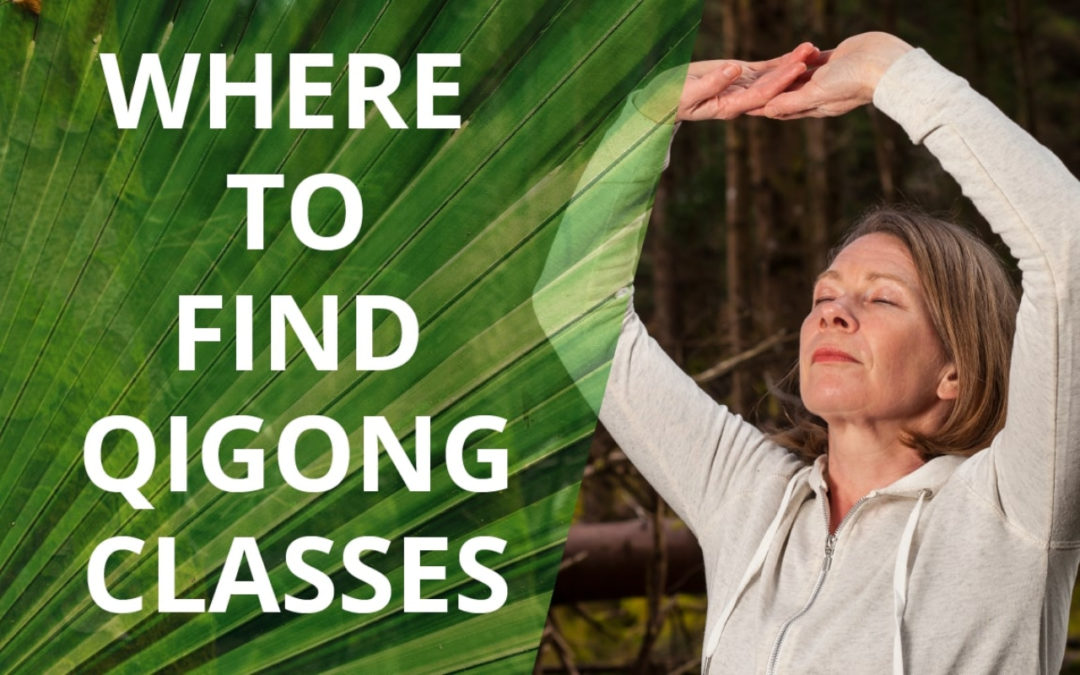
by janicetucker | 5 Aug 2016 | Qigong, Qigong Meditations & Breathing, Qigong Routines
Most of us of heard of meditation but what specifically is Qigong meditation and how can it help us in our lives? This video from Dr Janice Tucker explains Qigong meditation for you and highlights some of the many benefits of Qigong meditation for your health and day to day life.
Please don’t forget to subscribe to my YouTube channel by clicking here so you don’t miss my regular videos which are full of useful health enhancing tips. Also please give this video a “Like” if you found it informative.
Janice Tucker is a practitioner of Traditional Chinese Medicine and Medical Qigong, and the founder of the Space To Relax online programme of Qigong video lessons.
What is Qigong Meditation?
Qigong meditation is a meditation which can be still or moving. It involves the breath, posture and often simple, gentle movements. Qigong meditation helps to quiet your mind, make you feel tranquil. It also makes your body feel as though it is merging with the environment!
Qigong meditation focuses on relaxation so that you can calm the scattered thoughts in your mind. The movements and breath allow your Qi to flow much more freely, in an unimpeded way, around your body. When the Qi is doing this you feel much more relaxed, clearer, calmer and also energetic. Through regular Qigong meditation practice you will actually improve your state of health.
Because it is such a tranquil, quiet practice an interesting thing can also happen; you can be sitting for hours and it feels as though only a few minutes have passed by. For example, when I teach a Qigong meditation in my workshops that takes 15 minutes, my students often say afterwards that they feel as though only 5 minutes has passed by!
Qigong mediation alters your perception of time because you are so relaxed and enjoying being in the moment to the extent that you don’t feel the time passing!
How Can Qigong Meditation Help Us?
By allowing the free flow of Qi:
you feel calm and focused
scattered thoughts in your mind become more grounded
overwhelm is reduced
the stresses and strains of modern day living are easier to cope with
you feel much more able to take things in your stride
you feel much more energetic, with an underlying calmness
The result is that you become a nicer person to be around! People notice the difference in you when you are practising Qigong meditation regularly. This only has to involve an investment of a few minutes each day. You will notice that your relationships start to improve because you are giving off a much more “serene vibe”. People really will pick up on this!
When you achieve a calm mind:
1. Your sleep improves – we cannot sleep unless our minds are calm. If you have lots of thoughts whirring around in your mind it is almost impossible to sleep.
2. You are able to focus and concentrate much better during the day.
If you are interested in learning some free Qigong meditation then click on my Space to Relax homepage. Scroll to the bottom of the page where you can sign up for a free Qigong mediation called “Calm Your Busy Mind In 8 Minutes“. You can download the meditation to your laptop, tablet or phone. You can take it outside with you and practice in your favourite place in nature. You will notice in the very short space of time practising this meditation how much calmer and relaxed you feel so I invite you to try it!
Also, if you head over to my free group on Facebook, “Space To Relax Free Group” you can leave any questions for me there and I’ll be happy to answer them.
Please don’t forget to subscribe to my YouTube channel by clicking here so you don’t miss my regular videos which are full of useful health enhancing tips. Also please give this video a “Like” if you learned much more about Qigong meditation by reading this article.
home

by janicetucker | 26 Jul 2016 | Qigong, Qigong Practice Guidelines & General Information
This video from Dr Janice Tucker at http://spacetorelax.com/ shares with you where to find Qigong classes and the best ways in which to learn Qigong.
Please don’t forget to subscribe to my YouTube channel by clicking here so you don’t miss my regular videos which are full of useful health enhancing tips. Also please give this video a “Like” if you found it informative.
Janice Tucker is a practitioner of Traditional Chinese Medicine and Medical Qigong. She is also the founder of the Space To Relax online programme of Qigong video lessons.
Where Do I Find Qigong Classes?
Have you ever thought about learning Qigong but not known how to go about finding any Qigong classes near you? This is something I am asked about all the time.
1. Face To Face Qigong Classes
Many people would love to attend Qigong classes face to face with a teacher but it can be difficult to find a Qigong teacher in your area.
If you do find a Qigong class in your area this is a great way to learn Qigong, whether that be in night classes or workshops/seminars. This method of learning offers you close interaction with your teacher with feedback there and then. Your teacher can monitor you as you progress. This is one way in which I teach Qigong here in South-west Ireland.
2. DVD or YouTube
There are lots of videos out there online and to buy as DVDs. There is a huge choice of teachers and methods. However, the choice can be overwhelming, especially for a beginner. Also, you won’t necessarily receive feedback from the teacher so how do you know if you are doing the exercises correctly?
The other drawback here is that you often do not receive a structured programme of learning. Often Qigong is taught incrementally, starting with the basic, simple exercises and building up to more advanced methods. If you are watching DVDs or YouTube videos how do you know whether you are starting in the right place? How do you know you are progressing in the most healthy way?
3. Online Qigong Classes With Feedback And Support From A Teacher
By practising Qigong online you receive a structured programme of Qigong lessons. This usually starts with beginner exercises and progresses as you go through the course. Very importantly, you also receive guidance and feedback from your online teacher. This means you will feel confident that what you are doing is correct, every step of the way.
Online Qigong classes are perfect for those of you who want convenience and flexibility with your learning. You can practice from the comfort of your own home at any time of day. This is perfectly suited to shift workers carers of elderly relatives/young children or very busy people who are unable to commit to a set time and day of the week to attend live Qigong classes.
More Information
If you are interested in reading more about how to learn Qigong online to improve your health then click on my Space To Relax homepage. The Space To Relax online programme of video lessons are delivered weekly to you by accessing the membership site.
Also, you can you can sign up on the homepage for a FREE three part Qigong video lesson series and download a free Qigong meditation. This will give you a flavour of what learning Qigong online involves. I can support you if you head over to my free group on Facebook, “Space To Relax Free Group“. Just pop any questions in the comments box there.
Please don’t forget to subscribe to my YouTube channel by clicking here so you don’t miss my regular videos which are full of useful health enhancing tips. Also please give this video a “Like” if you found it helped you to decide on the best way in which you can attend Qigong classes.
home

by janicetucker | 15 Jul 2016 | Qigong, Qigong Practice Guidelines & General Information
This video from Dr Janice Tucker outlines Medical Qigong and the other broad categories of Qigong.
Please don’t forget to subscribe to my YouTube channel here so you don’t miss my regular videos which are full of useful health enhancing tips. Also please give this video a “Like” if you found it informative.
Janice Tucker is a practitioner of Traditional Chinese Medicine and Medical Qigong, and the founder of the Space To Relax online programme of Qigong video lessons.
What Are The Different Types of Qigong?
Sometimes you might find it confusing to read about the many different types and styles of Qigong which are practiced. However they fall into 4 main categories which I’ll outline below.
1. Medical Qigong
This is the one in which I am particularly interested, as a Chinese medicine practitioner. Medical Qigong is concerned with health, healing and prevention of illness. Medical Qigong is actually the basis for the other types of Qigong because if you gain a good grasp of Medical Qigong then you can use this solid foundation to practice the other types of Qigong.
2. Daoist (Taoist) Qigong
This type of Qigong is concerned with health, longevity and spiritual development.
3. Buddhist Qigong
This type involves cultivation of the body, speech and mind, protection against negative energies and many types of breathing exercises.
4. Wushu (martial arts) Qigong
This type is concerned with building body strength to make it resistant against attack. This is the type of Qigong you may have seen the Shaolin monks practising. It’s a fantastic practice for martial artists but also for athletes who are looking to so some type of strength training.
If you’d like to learn more about what Medical Qigong can do for you and how it can help you to improve your health then click on my website homepage here, where you can you can sign up for a FREE three part Qigong video lesson series and download a free Qigong meditation which will calm your mind in only 8 minutes. This will give you a flavour of what Medical Qigong involves.
Please don’t forget to subscribe to my YouTube channel by clicking here so you don’t miss my regular videos which are full of useful health enhancing tips. Also please give this video a “Like” if you found it informative.
I’d love to hear from you so please leave a comment below or head over to my free group on Facebook, “Space To Relax Free Group” and leave a comment for me there.
home
by janicetucker | 24 Jun 2016 | Qigong, Qigong Practice Guidelines & General Information
When practising Qigong exercise there are optimal conditions which make it easier for the Qi to flow smoothly throughout the body. The tips below explain the best time to practice Qigong exercise along with some other tips on the ideal conditions for your practice. The video below shows you an example of when NOT to practice Qigong! 🙂
Daily Practice
Do Qigong exercise every day – like brushing your teeth. If you do this regularly you can imprint a new order into your Qi. Don’t be too ambitious by thinking you should do 10 hours one day and none the next! This is not effective. A little each day is better. Then suddenly your energy will be freed up.
The Benefit of Practising in a Group
The Qi field in a room has a certain pattern (see the previous blog post: “What is a Qi Field“). This is very obvious if you have been practising Qigong for some time. In a group there can be profound changes in the Qi field during the day – group practice creates a stronger wave pattern.
At the beginning of the day the Qi has peaks and troughs but we are aiming for long, soft waves of Qi. This is perceived as a less disturbed atmosphere. Eventually you feel that you are resonating with the people around you and your surroundings. Once you feel this Qi field you can use it to enhance the potential in yourself. This is why, in China, Qigong is often done in groups. It is not that the Qi from everyone is added together; rather it is multiplied because of the synergy between the Qi fields of each person.
Swaying and Shaking Feelings
If you are standing for a while and not used to it you may feel shaking as a result of the strong movement of Qi. This is like water trying to get through a blocked pipe. Eventually the Qi will break through, like clearing out the dirty pipes. This sensation can come and go depending on the day. Do not be afraid of this. There is nothing wrong. If you tell yourself you don’t want to shake anymore then you can stop yourself. It only shows that a certain channel of Qi flow needs some help.
Timing of Practice
Wait for 1-1½ hours after eating to do moving Qigong exercise and 2-3 hours after eating for meditative Qigong exercise. Qigong is best done before breakfast.
Qigong is beneficial when practised at night. See how you react. Some people greatly benefit from night time practice once the stresses of the day are over. This may be a good time to align the Qi if you have problems sleeping. Some people become too awake from Qigong so night practice would not be the best for them.
Qigong exercises can be incorporated into daily life but as you start to reap the benefits you will want to put aside some time for “proper” practice in a calm environment.
Duration of Practice
At first 10 minutes seems a lot but after a while 30 minutes practice will feel like no time at all. Gradually build up your practice as your strength increases.
Place to Practice
Qigong exercise is best practised outdoors. It is OK if it is raining, as long are you are protected. Wear lots of layers as Qigong opens you up to exposure and can result in joint pain, back pain or catching a cold if you are not protected.
Wind is the worst thing for Qigong. A little wind is OK but never let it be behind you, always face it because the areas vulnerable to wind are on the back.
If you’d like to learn more Qigong breathing and meditation techniques then click on my website homepage. There you can download a free Qigong meditation which will calm your mind in only 8 minutes. Also you can sign up for a FREE three part Qigong video series.
Please don’t forget to subscribe to my YouTube channel by clicking here so you don’t miss my regular videos which are full of useful health enhancing tips. Also please give this video a “Like” if you found it informative.
I’d love to hear from you so please leave a comment below or head over to my free group on Facebook, “Space To Relax Free Group” and leave a comment for me there.

by janicetucker | 13 Jun 2016 | Qigong, Qigong Practice Guidelines & General Information
This video explains your Qi field and the importance of making sure you do your best to only come into contact with positive, healthy Qi fields in your environment.
Janice Tucker is a practitioner of Traditional Chinese Medicine and Medical Qigong, and the founder of the Space To Relax online programme of Qigong video lessons.
It may be viewed by some as “woo-woo” or “out there” when we talk about your Qi field. Very simply, your Qi is your energy (although there is much more to it than that). This energy is inside your body, at the surface of your body and can extend beyond your body. The part that extends beyond your body is your Qi field.
In Medical Qigong your Qi field is simply an extension of your Qi beyond your physical body.
Consider this quote from Thich Nhat Hanh:
“Every feeling is a field of energy. A pleasant feeling is an energy which can nourish.”
We can pick up pleasant feelings around pleasant fields of energy and unpleasant feelings around unpleasant fields of energy. You know this already because if you walk into certain environments or rooms you will pick up a vibe, one way or the other, about whether that environment feels good or not. If it feels good it creates a pleasant feeling because it has a pleasant field of energy around it.
For example, imagine walking in a forest which is lush and green, with the sun streaming down through the trees. It feels warm, fresh and clear. You will feel a pleasant feeling from that. This is because trees have a clear and nourishing Qi field. They create a very good vibration of energy or Qi around them. When you walk through a forest you are bathing in that energy and experiencing a lovely feeling.
The opposite example is driving behind a smelly truck churning out exhaust fumes which are entering through the vents of your car. The Qi field around the truck is not clear and fresh, it is polluting and so does not create a pleasant feeling for you as you are forced to inhale the noxious fumes while driving along behind it.
In Medical Qigong a type of Qi field exists called the Wei Qi. It is the field of energy that extends beyond your body. In Chinese Medicine the Wei Qi is also called Defensive Qi or Protective Qi because it prevents invasion by external pathogens. It also communicates with the universal and environmental energy fields.
In the above video you can see the “Circles” exercise which you can use to connect with the Qi of the environment (e.g. trees, beach).
Our Qi field is affected by the external environment, emotions and physical trauma so it is very important to protect it and manage it well.
The practice of Qigong allows you to rid yourself of any emotions that affect your Wei Qi field and could cause physical and mental illness. By using your breath, movement and mind you will, with practice, gain much more control over your life (and your health).
Being aware of the type of energy fields you are in and which things affect your energy field is very important in the management of your health.
If you’d like to learn more Qigong breathing and meditation techniques then click on my website homepage. There you can download a free Qigong meditation which will calm your mind in only 8 minutes. Also you can sign up for a FREE three part Qigong video series (where I show you the “Circles” exercise in more detail).
Please don’t forget to subscribe to my YouTube channel by clicking here so you don’t miss my regular videos which are full of useful health enhancing tips. Also please give this video a “Like” if you found it informative.
I’d love to hear from you so please leave a comment below or head over to my free group on Facebook, “Space To Relax Free Group” and leave a comment for me there.
home





